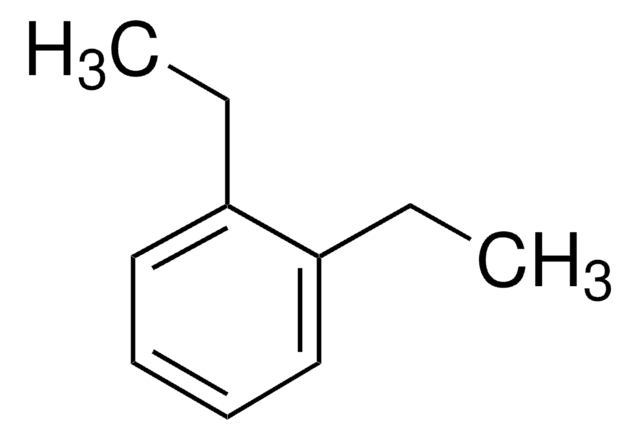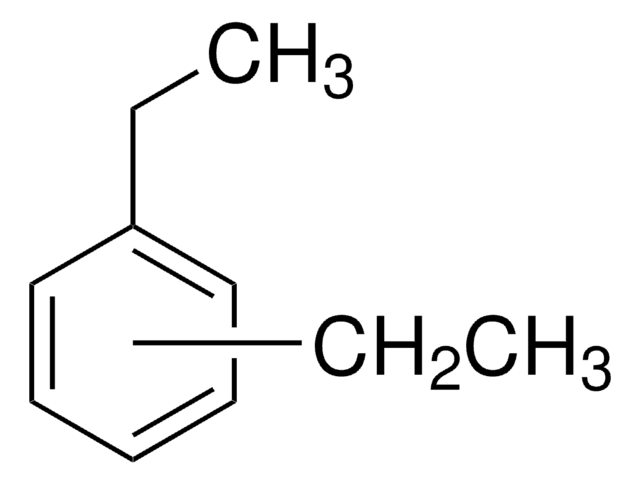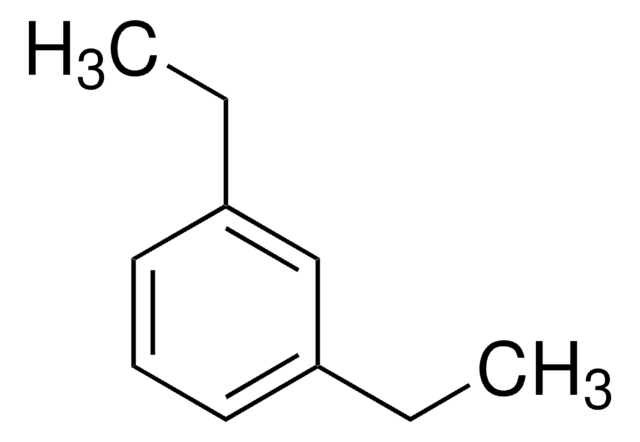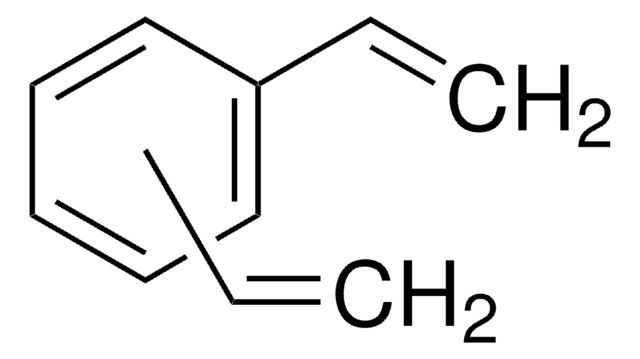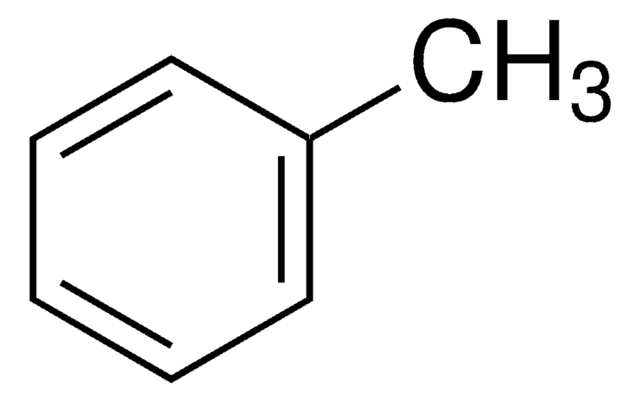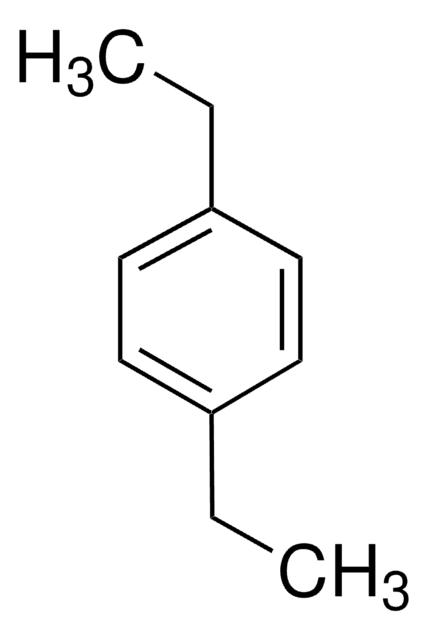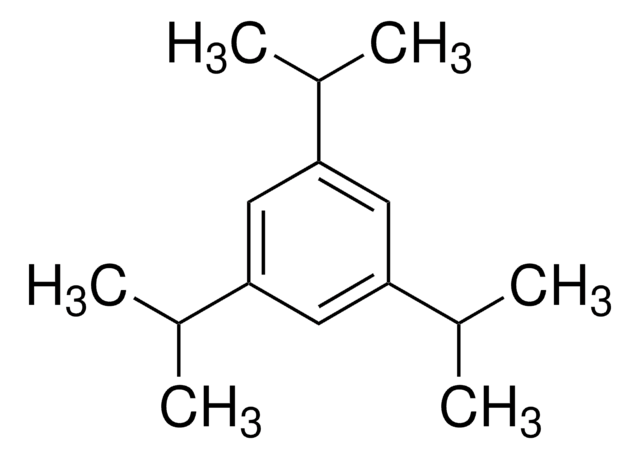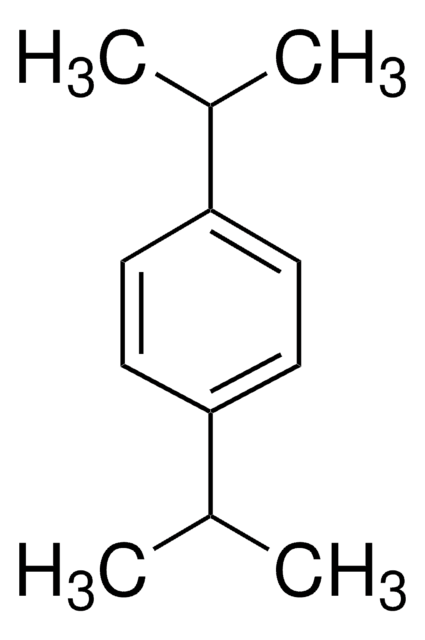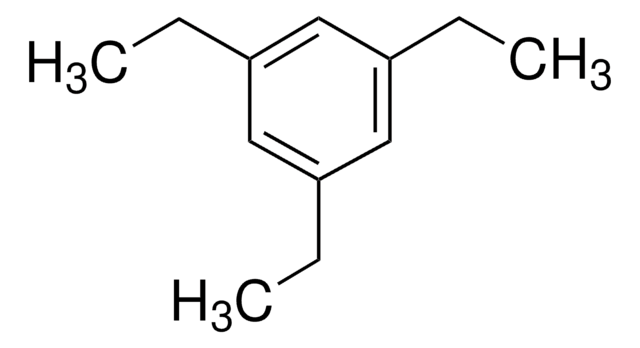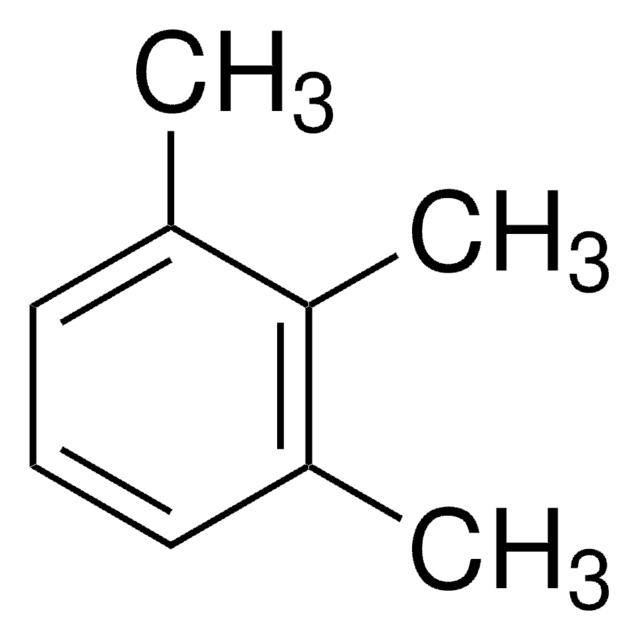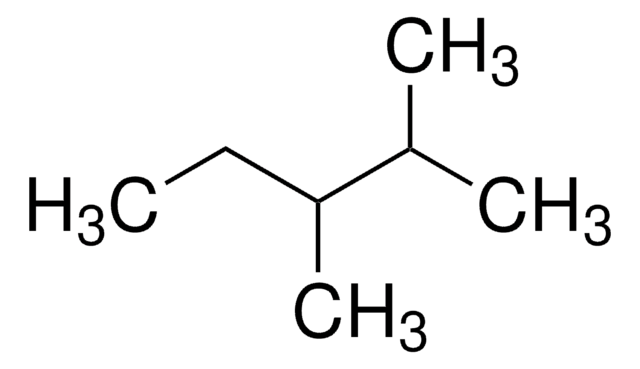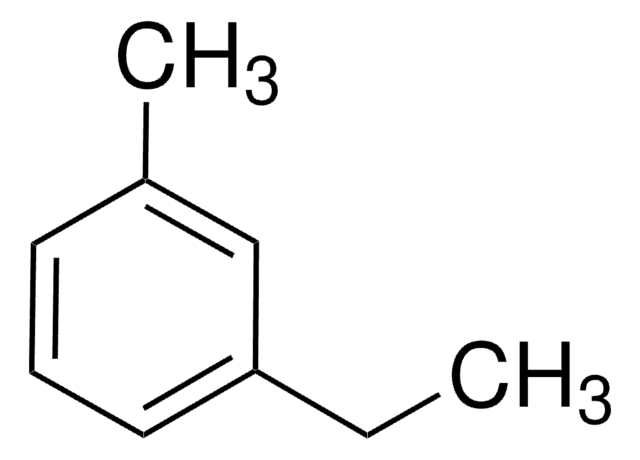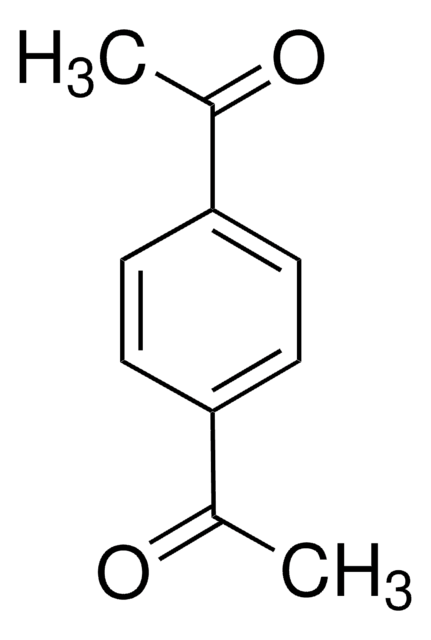About This Item
Recommended Products
vapor density
>1 (vs air)
Quality Level
vapor pressure
0.99 mmHg ( 20 °C)
assay
≥98%
form
liquid
autoignition temp.
806 °F
refractive index
n20/D 1.495 (lit.)
bp
184 °C (lit.)
mp
−43 °C (lit.)
density
0.862 g/mL at 25 °C (lit.)
SMILES string
CCc1ccc(CC)cc1
InChI
1S/C10H14/c1-3-9-5-7-10(4-2)8-6-9/h5-8H,3-4H2,1-2H3
InChI key
DSNHSQKRULAAEI-UHFFFAOYSA-N
Looking for similar products? Visit Product Comparison Guide
Related Categories
signalword
Danger
hcodes
Hazard Classifications
Aquatic Chronic 2 - Asp. Tox. 1 - Eye Dam. 1 - Flam. Liq. 3 - Skin Irrit. 2
wgk_germany
WGK 3
flash_point_f
132.8 °F
flash_point_c
56 °C
ppe
Eyeshields, Faceshields, Gloves, type ABEK (EN14387) respirator filter
Certificates of Analysis (COA)
Search for Certificates of Analysis (COA) by entering the products Lot/Batch Number. Lot and Batch Numbers can be found on a product’s label following the words ‘Lot’ or ‘Batch’.
Already Own This Product?
Find documentation for the products that you have recently purchased in the Document Library.
Customers Also Viewed
Protocols
GC Analysis of Hydrocarbons in Gasoline on Petrocol® DH, Isothermal
Our team of scientists has experience in all areas of research including Life Science, Material Science, Chemical Synthesis, Chromatography, Analytical and many others.
Contact Technical Service